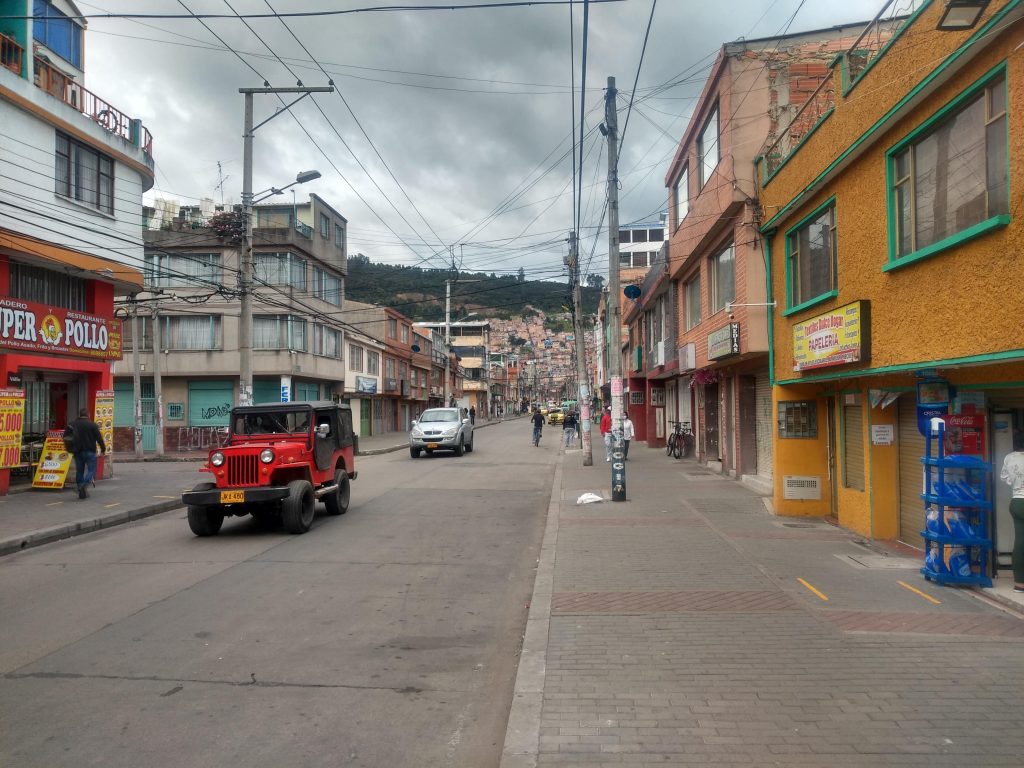Ingresa o regístrate acá para seguir este blog.
@wwaycorrigan
[Click here for an audio version of this blog entry.]
Many reasons have been given as to why certain countries continuously perform worse than others.
The most common of these are the legacy of colonialism, the system of government in place, corruption, clientelism and the associated problems they create, religion, climate and geographical location and, condescending and a wild generalisation as it is, the psyche of the nation in question. While different commentators put more emphasis on one factor over another, most agree that it’s a mixture of all the above and more that dictates a country’s performance.
Not in the mood to brood
Speaking specifically about Colombia, this interplay of the malignant aspects of these factors gives a decent understanding as to why the country’s overall record is mediocre at best, appalling at worst. Many, however, would place corruption top of the list, yet there are other issues at work fomenting that.
One of those, at the risk of making a broad generalisation myself, is what I’d describe as, putting it mildly, a somewhat philosophical attitude many Colombians seem to have when confronted with problems.
This manifests itself positively in their ability to ‘just get on with things’, to carry on regardless. For example, as one fellow Irishman resident here put it, ‘If there was a devastating earthquake one day, they’d still get up at 5 am to go to work the next.’ There’s a bit of exaggeration in that, but it’s not completely off the mark.
To give a recent example, the 44-year-old brother of the landlady of my local, family-run panadería died unexpectedly. Not only did they not close the bakery-cum-café, with family members working pretty much as normal, but the landlady herself, the sister of the deceased, was back preparing meals for customers the day after the funeral. She also worked the morning she found out her sibling had died.
Another way this ‘what about it?’ mentality can be refreshing is when it comes to arguments — for while Colombians can shrug things off, this isn’t to say that they don’t let their rage be known when they feel the need arises (some do this more than others, of course).
‘The salary for Colombian politicians is up to 35 times higher than the minimum wage. That’s like members of parliament in Ireland getting upwards of 50,000 euros per month.’
So you can have this unholy disagreement, replete with the harshest of comments, even leading to physical aggression in some instances. Yet, with the passing of no more than an hour, it’s like nothing at all happened. Basically, as we Irish would say, ‘Tis all grand.’ Brooding over slights, perceived or real, just doesn’t seem part of the culture.
Nonetheless, one has to wonder, in reference to the development of the country as a whole, as to whether or not, in the long run, such behaviour is beneficial. The negative side to it is apparent in a multitude of areas.
Colombia for Colombians
For one, there’s customer service, nay the lack thereof, which I’ve addressed before. This acceptance of mediocrity is infuriating. Indeed, if you speak out against it, you’re generally seen as being in the wrong.
There’s the aforementioned corruption. Again, many seem rather blasé about it. The unwillingness of drivers to obey basic rules of the road, how about it?! The lack of action to address the exorbitant salaries paid to politicians, up to an incredulous 35 times higher than the minimum wage (while in Ireland we moan, rightly, about the pay for our members of parliament [TDs], using the same ratio, it would be like a TD getting upwards of 50,000 euros per month). The list goes on. And on.
It was Why Nations Fail author, James Robinson, who said in a podcast chat with me late last year that Colombia has a weak state and a weak society. While one can point to areas where the state does flex its muscles and arguably excessively so, there is no doubting an overall weakness of collective action to tackle issues that are, or at least should be, of general concern.
In the days of European imperial interference in the Far East, the retort from some locals was ‘Asia for Asians’. As an outsider in Colombia and seeing the frustrating indifference of many locals towards their plight, at times it seems the best option is to leave Colombia to Colombians. Carry on regardless, lads.
_________________________________________________________
Listen to Wrong Way’s Colombia Cast podcast here.
Facebook: Wrong Way Corrigan — The Blog & IQuiz “The Bogotá Pub Quiz”.



Hay bastante de cierto en la nota. Pero cuales serían los puntos sobresalientes? Talvez la indiferencia impacte a los europeos, pero que aspectos positivos les impactan también?
- Me gusta
0
- No me gusta
0
ReportarCalifica:
Sí señor, en ciertos aspectos, la indiferencia es endémica en Europa. Pero estamos hablando de Colombia en este sentido.
- Me gusta
0
- No me gusta
0
ReportarCalifica: